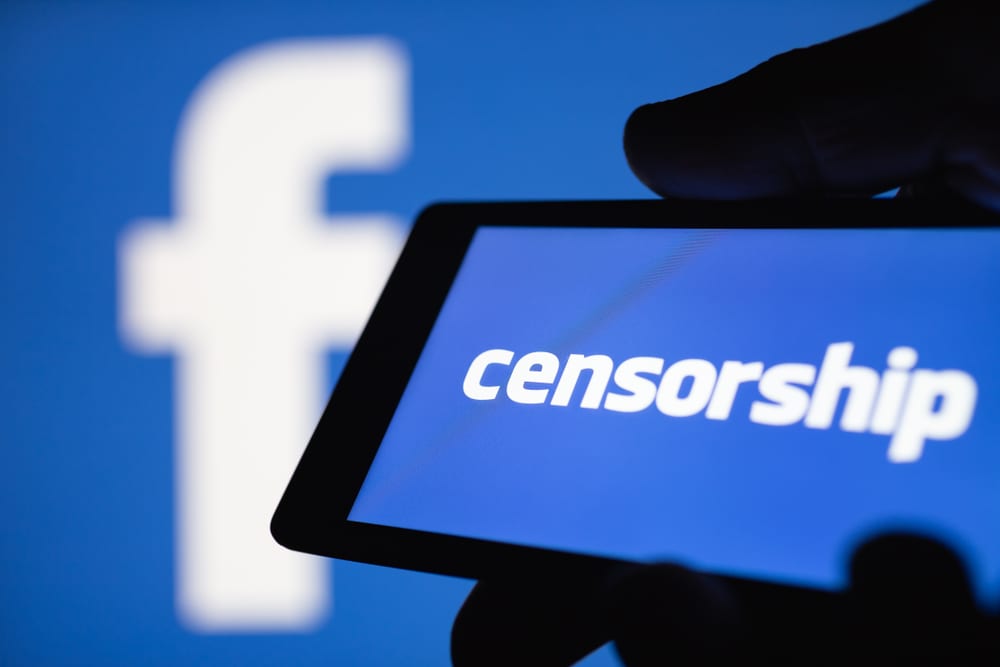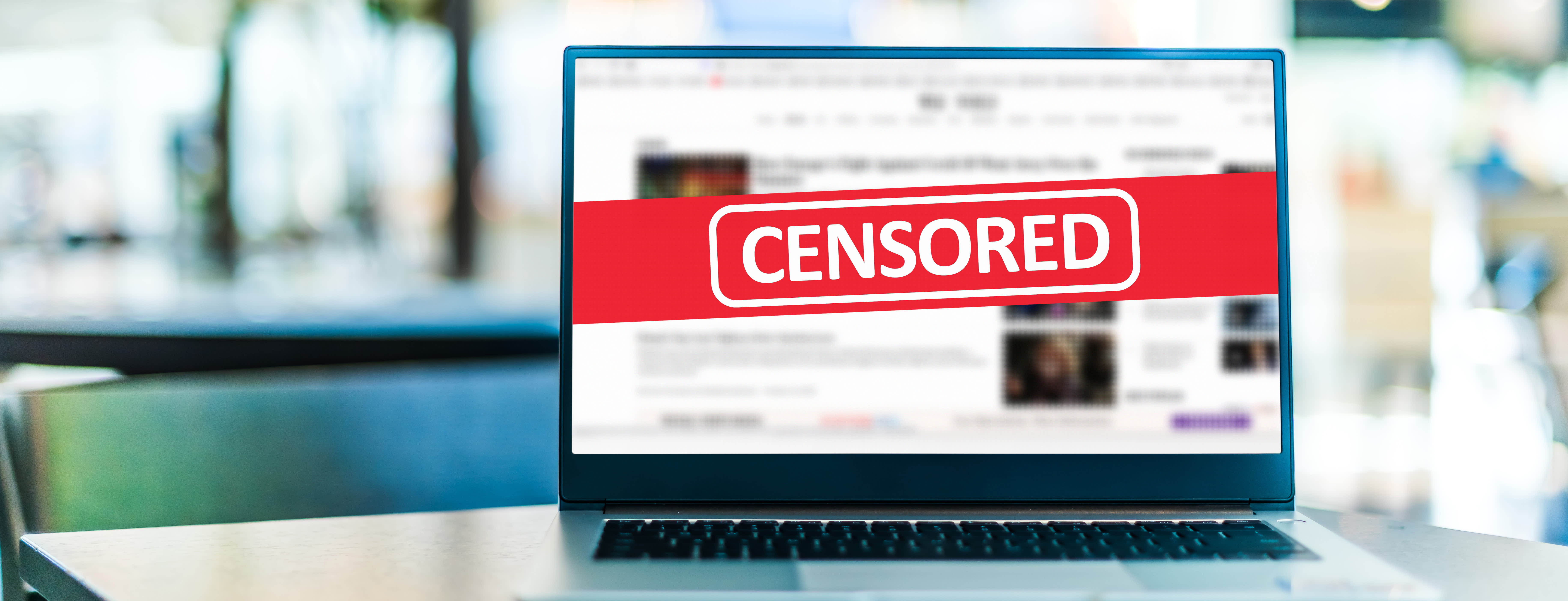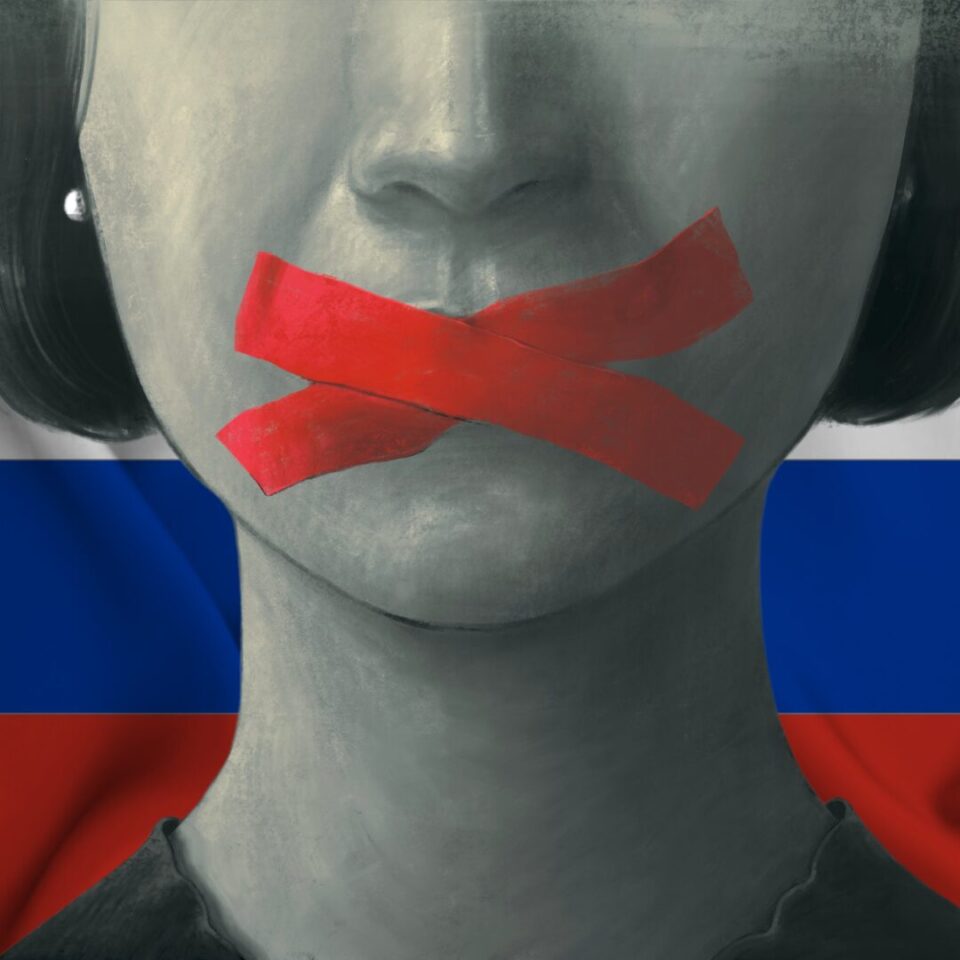Information is power. Control of information is the ultimate power. That’s exactly what Putin is counting on.
When Russia invaded Ukraine, social media exploded with support for Ukraine and conviction for Putin’s Russia. Of course, many people understand that it isn’t the Russian citizens themselves who are to blame, as in fact many Russians don’t know the full story. If you’ve seen footage from Ukraine, President Zelenskyy’s interviews, or even have an understanding of Russian – Ukrainian history it might be hard to believe that Russians don’t know what’s really going on. But it’s true. The reason? It’s all thanks to Putin’s control of information (aka Russian censorship).
Russian censorship is Everywhere
For years, Russia has been on a mission to control the flow of information both inside the country but also from outside sources, with all indicators pointing to Russia heading towards a total authoritarian style of censorship.
The model entails, among other things, blocking social and traditional media that talk of rebellion, or even just criticism of Putin and his government. On numerous occasions Russia has restricted and/or blocked access to Facebook, Instagram, Twitter and TikTok.
On TikTok, for example, Russian users can only view historical Russian content and cannot post or view any other content. This followed the Kremlin passing a law which CRIMINALISED the spreading of content that it deems to be ‘fake news’ about Ukraine. Who gets to choose what counts as fake? The invaders themselves. Authoritarian censorship at its finest.
At first you might think ‘So what? Blocking such sites is not necessarily evil’. But, think about it. Where did you first hear about the Russian invasion? Where did you first see videos of it? Where did you first comment on it? Let us take a wild guess. On all these sites!
Now imagine an entire country unable to view all of this content and their only source of knowledge on the topic is the media that is approved by the invaders themselves. Further, the media that is allowed is threatened by criminal punishment if they share any reports that the government disapproves of – how honest do you think these reports will be?’
Clearly seeing this for the huge red flag that it was, many broadcasting companies including the BBC withdrew from Russia.

Patchy Solutions
One way in which Russian citizens have attempted to get around the censorship was the use of VPNs (Virtual Private Networks), those things people use to access a foreign country’s Netflix to view extra shows. The Russian citizens rely on them just to hear the truth about what is going on in the world, including an invasion they are part of.
Putin, of course, couldn’t have this and many VPN companies were shut down or restricted while many people couldn’t access a number of the VPN’s that required payment as they couldn’t actually pay for the service due to sanctions imposed on Russia as punishment for the Ukrainian invasion which blocked the use of VISA, Mastercard, Google and Apple Pay.
When there is a will, there is a way
Russia’s authoritarian regulation has resulted in the shutdown of hundreds of domestic news websites. In an attempt to combat this, we now have the website known as Samizdat Online. This site lets Russian users access blocked websites in the most user-friendly way possible that requires no technical know-how.
Essentially, the site takes content from blocked websites and assigns them to new domains. All you have to do is click on the blocked website’s name. Currently, the website hosts a number of links to the domains but according to Wired, the site will take on the appearance of a traditional news site.

Researching Samizdat Online also reminded us of ‘The Uncensored Library’, a virtual library within the Minecraft video game (a game aimed at young people that allows users to build their own worlds), where users would record censored content in the Library’s virtual books for Minecraft players from oppressed countries to read to overcome the censorship and learn the truth.
The social aspect of the Library being located within Minecraft also allowed the young people accessing the content to engage with other players and discuss the content they were reading.
It’s saddening to think that these issues of censorship continue. But it is encouraging and inspiring to know that people behind solutions such as The Uncensored Library and Samizdat Online will continue to find new ingenious ways to overcome oppression and censorship.


